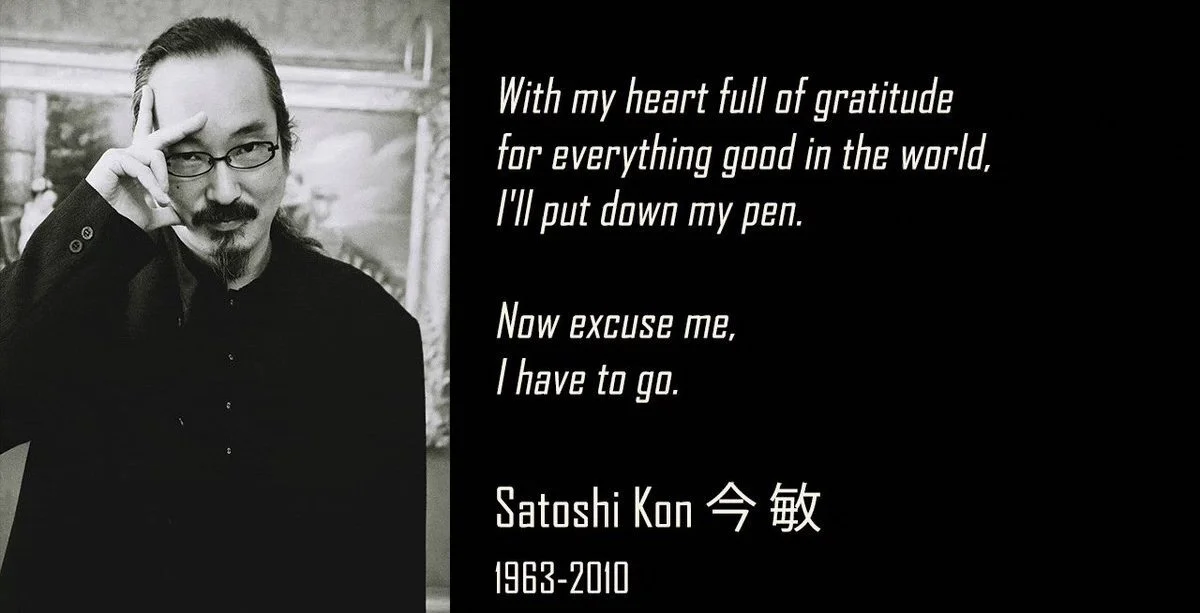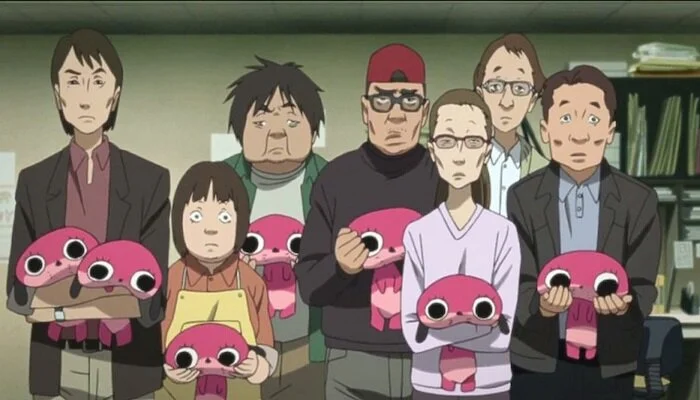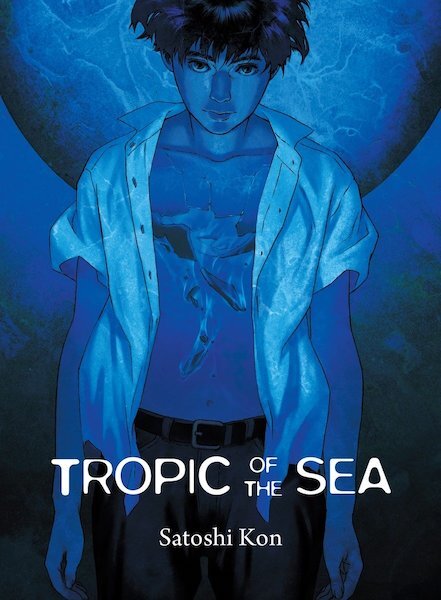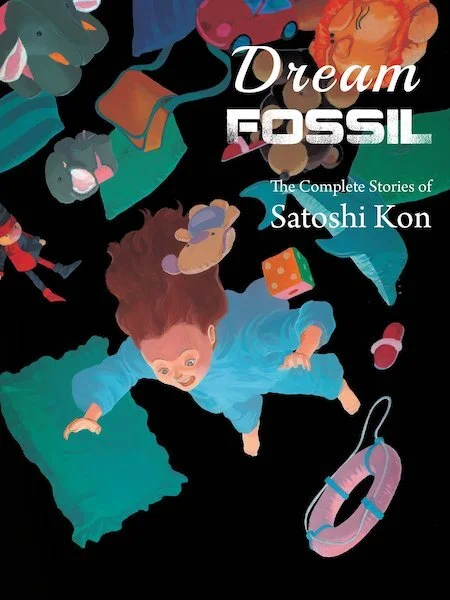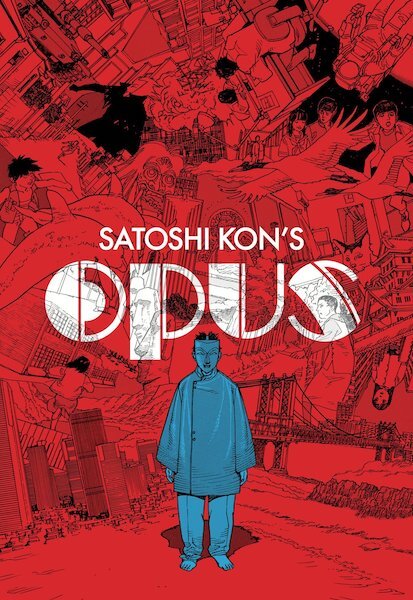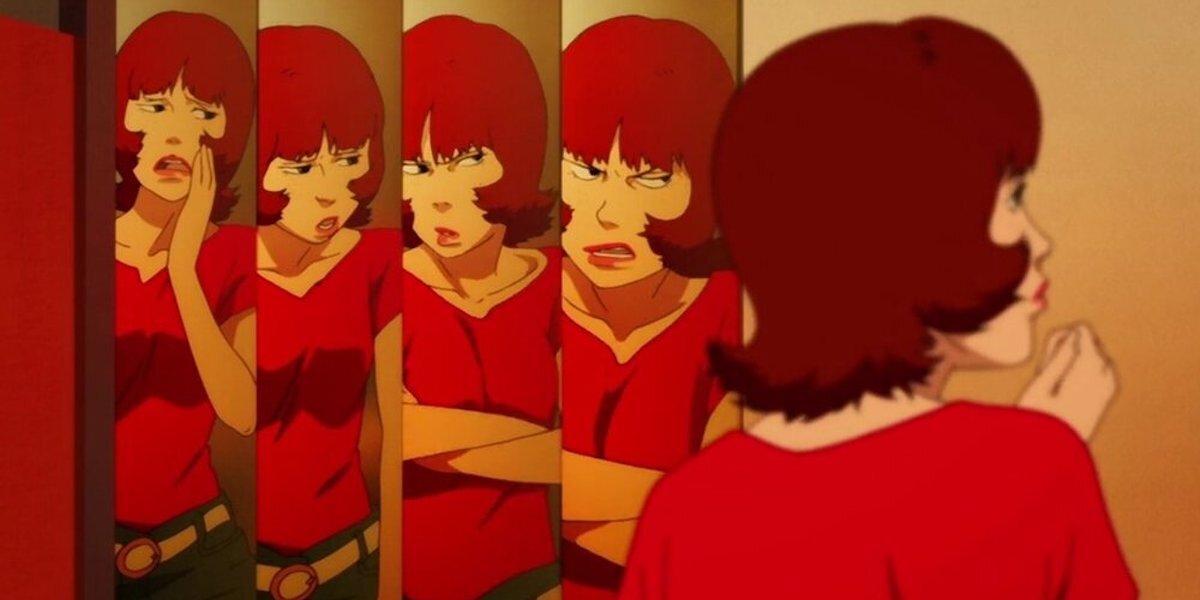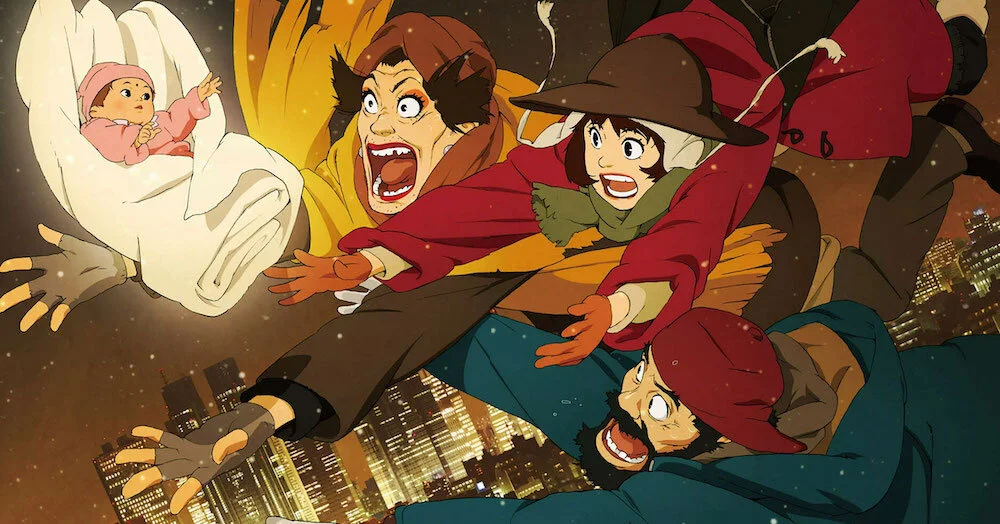SATOSHI KON: THE ILLUSIONIST (2021) [Fantasia 2021]
Satoshi Kon is an indelible giant in anime, filmmaking, and storytelling. His tales and ideas (whose seeds often originated in other legendary artists) are extremely influential across all mediums and have found their way into so many works enjoyed by millions who have never heard of Kon. In his too-brief 26-year career, he created multiple manga, one TV series, and four* films—not to mention his other work as an animator, writer, and other positions on various films and shows. His catalogue is filled with characters that question the fluidity of identity and reality, often tinged with the exhilaration of the unexpected and the terror of the unknown. Kon is a figure whose work, style, and ideas will echo forward in untold number of stories that will be made until the end of storytelling itself.
It’s a shame that more hasn’t been written about this pillar of modern mythmaking, but it’s possible that it is too daunting to attempt to encapsulate not just his 44 years of life but also the way his imagination reverberates through time.
Or perhaps it’s because Kon wasn’t very well known by many around him and there’s little access granted from his loved ones to learn more.
At least, that would be the plausible reason why the first major documentary on the iconic artist is very light on biographic details and greater insight into the man behind the pen.
SATOSHI KON: THE ILLUSIONIST, the new documentary from Pascal-Alex Vincent, attempts to paint a portrait of the artist through interviews and his works, but never delves deeper into that and thus leaves a lot of blank spaces on the canvas. It’s a good overview of the maestro’s career, which was cut short by cancer, but does little to offer anything new or truly profound. The rumination on works that didn’t come to fruition are exciting and help extend the narrative of Kon’s life. There are glimpses of intriguing aspects of Kon’s personality that Vincent doesn’t follow up on, either by choice or due to limitations is unknown. It’s a fine way to get to know Kon’s work and have an idea of the man himself but there’s not much else to learn—which may have been what Kon wanted all along.
ILLUSIONIST tracks Kon’s life and works through interviews with his collaborators and artists he’s influenced alongside footage and imagery from his various projects. Not a lot of time is devoted to his childhood, the character of Kon essentially springing out fully formed as a rebellious artistic teen heavily influenced by Katsuhiro Otomo (Akira). Moving up from Manga artist, to writer, to animator, and eventually a writer/director of his own titles, Kon’s talent was always evident to those around him, whether it was his fine line work on his drawings or his bold narrative choices, or his push to make something unique and perfect.
While his manga work is exceptional, Kon will be remembered most for his films and TV work. PERFECT BLUE, MILLENNIUM ACTRESS, TOKYO GODFATHERS, Paranoia Agent, PAPRIKA are the major cinematic works that the writer/director gifted the world. They are broken worlds full of broken people that seek to be whole, and realizing that the cracks in their lives and in themselves may not be as they appear. Malleable realities shaped by subjective neuroses and viewpoints crafted by a skeptic who sees most societal ways as mere constructs.
Vincent interviews actors from Kon’s works like Junko Iwao and Megumi Hayashibara, multiple collaborators from editing and finance, and even his longtime producer Masao Maruyama, co-founder of Madhouse animation studio. There are also folks who knew Kon but mostly knew him from his works which heavily influenced their own—like Darren Aronofsky, Mamoru Hosoda, and Rodney Rothman. From the outset, it’s clear that Kon was very much a complicated person who was capable of great kindness but also incredible harshness; this bifurcated personality would manifest either separately, with some interviewees say he was always sweet and kind to them, while others talk about how demanding he was and blunt in his criticisms; or this disparity would show up under one banner with those close to him benefiting from his amazing support and then stinging from his cruel rebukes. Everyone has that duality inside of them, to various extents, but it seems to be a mark of Kon especially.
Though that also leads to both a theme of the film and a massive source of vexation. No one seems to really know who he was. As noted, there’s the very disparate experiences that people had with him.
But nothing is discussed about his marriage or diagnosis and disease; which is in keeping with real life where Kon hid it from most of his loved ones until he release astounding last words before dying.
It’s never fully presented that Kon is truly inscrutable. Vincent doesn’t make that the angle from which the artist is examined but instead delves into the works and then points out that someone people really liked working with him, others didn’t, and others experienced both sides of his personality.
That misreading of the situation can be seen in other aspects of the documentary. When a (female) producer asks, after watching PERFECT BLUE, why he’s so cruel to women in his movies, Kon replies that it never occurred to him as such because he sees those women as him. Whenever he would put an autobiographical character/stand-in into one of his works, it was always a female character because that’s how he saw himself when manifesting into fiction. Similarly, it’s also noted (in a very tossed off manner) that Kon enjoyed entertaining his crews by going to bars and surprising them by performing in drag. Considering the bending nature of his work, it seems pretty notable that such gender fluidity existed, openly, in his perception and occasional actions and would be worthy of further discussion. It is not.
The best part of SATOSHI KON: THE ILLUSIONIST is when it discusses DREAMING MACHINE, the final and incomplete film that Kon was working on. There’s lots of great story details provided by those involved in its making, as well as gorgeous art and character designs. The sadness that those on screen feel knowing they’ll never be able to see this movie is palpable, and shared.
There are some other insights offered throughout. Kon constantly fought to make sure all of his animators were paid well (better than most) and also wanted his projects to be ways to nurture new talents and voices in the anime industry to create greater diversity of artists and stories. There are some interesting bits of trivia and behind-the-scenes aspects for each production, but nothing that alters the way one would perceive Kon’s works. The assessments of Paranoia Agent and each of the films is good, but not very deep or insightful.
SATOSHI KON: THE ILLUSIONIST is great for someone new to the iconic artist or simply wants a primer. Those that are familiar with him and his works won’t find much new ground here or at least anything that brings them closer to Kon. And that may be how Kon wanted it, being aloof and elusive with his inner life seemed to not only be how he handled people around him but also seeped its way into his many works. But in that case, it still could have been presented in more innovative fashion narratively and visually, per Kon’s own approach. SATOSHI KON: THE ILLUSIONIST is a good start to memorializing the anime giant, but hopefully it is just the start.


